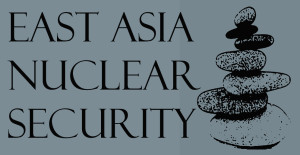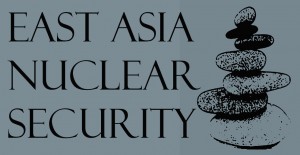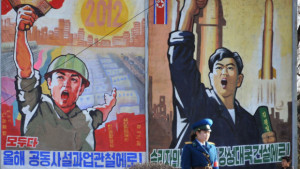Daily Report Archives
Established in December 1993, the Nautilus Institute’s *N*ortheast *A*sia *P*eace and *S*ecurity *N*etwork (NAPSNet) Daily Report served thousands of readers in more than forty countries, including policy makers, diplomats, aid organizations, scholars, donors, activists, students, and journalists.
The NAPSNet Daily Report aimed to serve a community of practitioners engaged in solving the complex security and sustainability issues in the region, especially those posed by the DPRK’s nuclear weapons program and the threat of nuclear war in the region. It was distributed by email rom 1993-1997, and went on-line in December 1997, which is when the archive on this site begins. The format at that time can be seen here.
However, for multiple reasons—the rise of instantaneous news services, the evolution of the North Korea and nuclear issues, the increasing demand for specialized and synthetic analysis of these and related issues, and the decline in donor support for NAPSNet—the Institute stopped producing the Daily Report news summary service as of December 17, 2010.

Chung-in Moon asserts that the Six Party Talks (SPTs) mechanism and the idea of a Northeast Asia Weapons Free Zone (NEA NWFZ) are mutually complementary and should be pursued in parallel. While the SPTs are designed to deal with the North Korean nuclear problem, they cannot address the other nuclear-related challenges the Northeast Asian region is currently facing, including enrichment, spent fuel management, waste disposal, reactor safety and emergency management. Likewise, without addressing the North Korean nuclear program, regional cooperation on these issues is unlikely.
Chung-in Moon is a professor of political science at Yonsei University and a former Ambassador for International Security Affairs at the Ministry of Foreign Affairs and Trade, Republic of Korea
Go to the article

Leon V. Sigal provides an overview of political prospects for establishing a bilateral Korea-Japan Nuclear Weapons Free Zone (NWFZ). He notes that such an agreement necessarily raises the question of Japanese and South Korean reliance on US extended nuclear deterrence and “the outcome of any reconsideration thus depends critically on Japanese and South Korean views of North Korea’s nuclear arming, China’s rise, and their historical differences with each other.” Sigal concludes that, while an unbounded North Korean nuclear program could strengthen the nuclear radicals in Tokyo and Seoul who favor nuclear arming, nuclear conservatives in both countries might see heightened advantages in negotiating a NWFZ to help forestall a regional nuclear arms race and improve bilateral relations.
Leon V. Sigal is director of the Northeast Asia Cooperative Security Project at the Social Science Research Council in New York.
Go to the article

In the following report Jong Kun Choi reviews domestic opinions concerning US extended deterrence to the ROK—including recent debates on South Korea’s nuclear sovereignty— and the diverging perspectives on the issue in South Korean society. Choi argues that the ROK and the US must shift from extended deterrence to tailored deterrence. He concludes, however, that military deterrence (extended and tailored) is not sufficient for resolving North Korea’s nuclear program and weapons. Instead, South Korea and the United States should revive traditional postures of engagement towards the DPRK and exercise strategic patience in order to induce change from within.
Jong Kun Choi is an Assistant Professor in the Department of Political Science and International Studies at Yonsei University.
This report was originally presented at the East Asia Nuclear Security workshop held on November 11, 2011 in Tokyo, Japan. All of the papers and presentations given at the workshop are available here, along with the full agenda, participant list and a workshop photo gallery.
Go to the article

Colin McAskill asserts that “to continue to link economic engagement with the nuclear issue [in the DPRK] proved to be not only counter-productive but foolhardy. Instead the US must continue the bi-lateral approach, announce publicly that the international banking system is open to the DPRK to use and encourage investors to participate directly in its economic development so they don’t have to do so indirectly or clandestinely through China.”
Colin McAskill’s experience, dealing with as well as for-and-on-behalf-of the DPRK at the highest level, spans more than three decades. He has a deep-seated knowledge, understanding and first-hand experience of the DPRK, its strategies and tactics. He acted as an advisor for a decade during the period of the ‘Bullion Shipments’ into London; arranged training schedules for DPRK delegations in the UK; acted as the mandated representative for the DPRK during the ‘Defaulted Debt’ negotiations with the DPRK’s ‘London Club’ creditors; acted as a mandated representative for the DPRK during the Banco Delta Asia banking crisis in Macau, as well as many other individual assignments. He made his first visit to the DPRK in 1979 and has been a regular visitor to the country over the years.
Go to the article

Coming in the wake of the Fukushima nuclear accident, which starkly reminded the world of the perils posed by nuclear materials, the Seoul Nuclear Security Summit faces a host of challenges. Sharon Squassoni lays out what is at stake, what outcomes can be expected and those that, unfortunately, cannot.
Sharon Squassoni is Director and Senior Fellow at the Proliferation Prevention Program of the Center for Strategic and International Studies.
Go to the article





